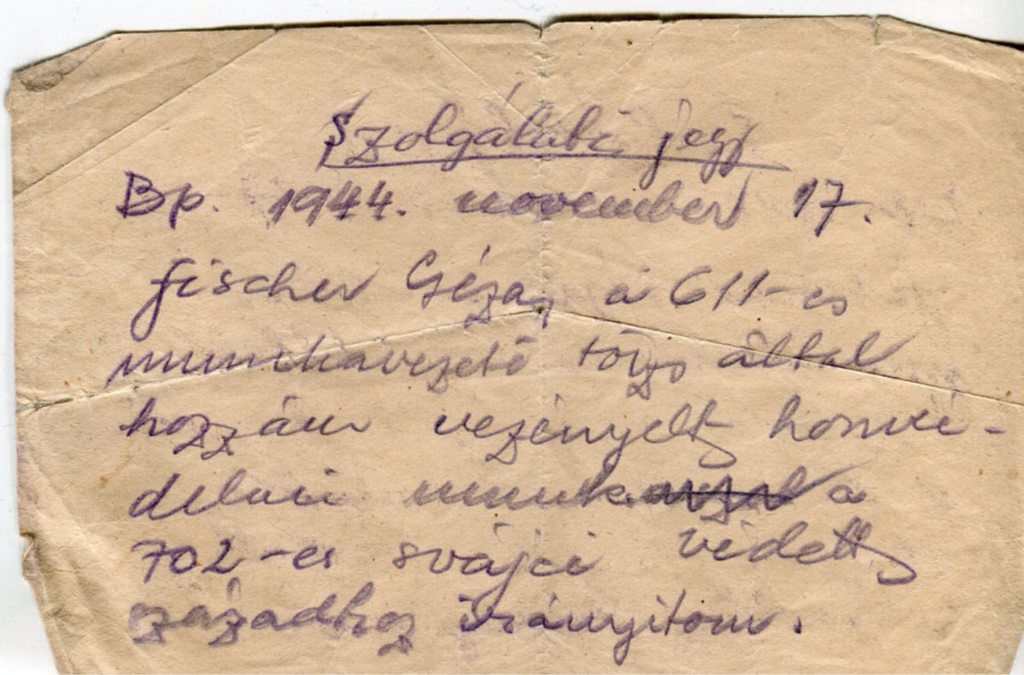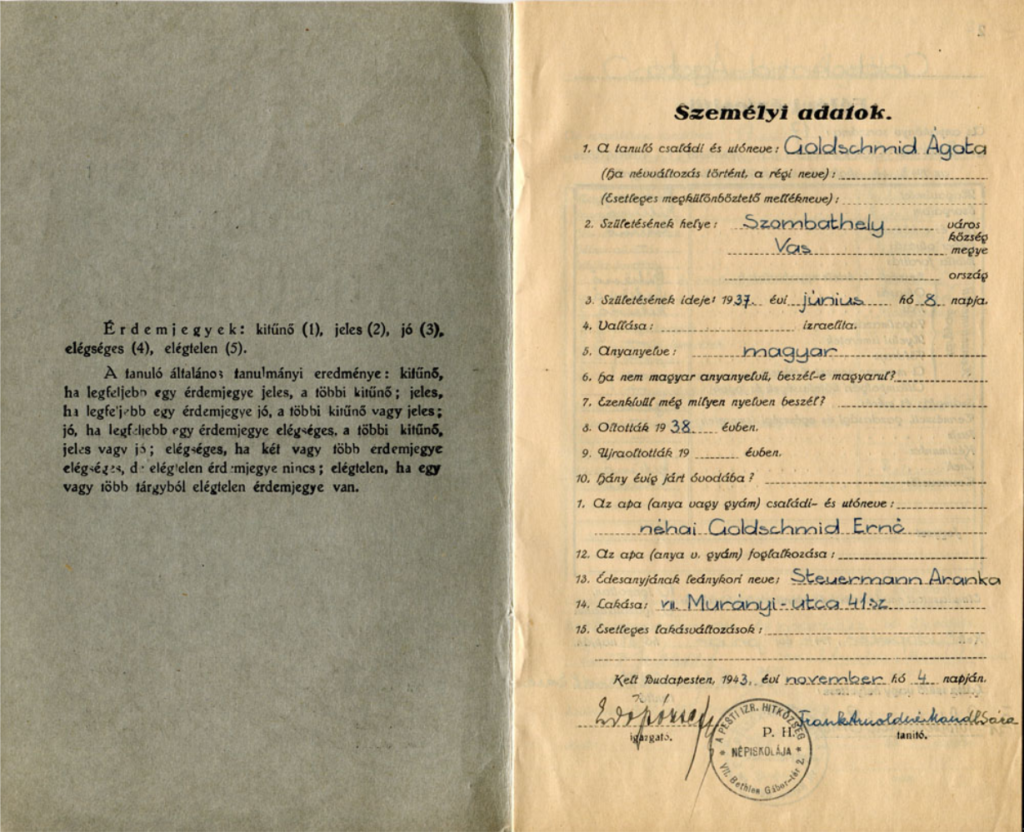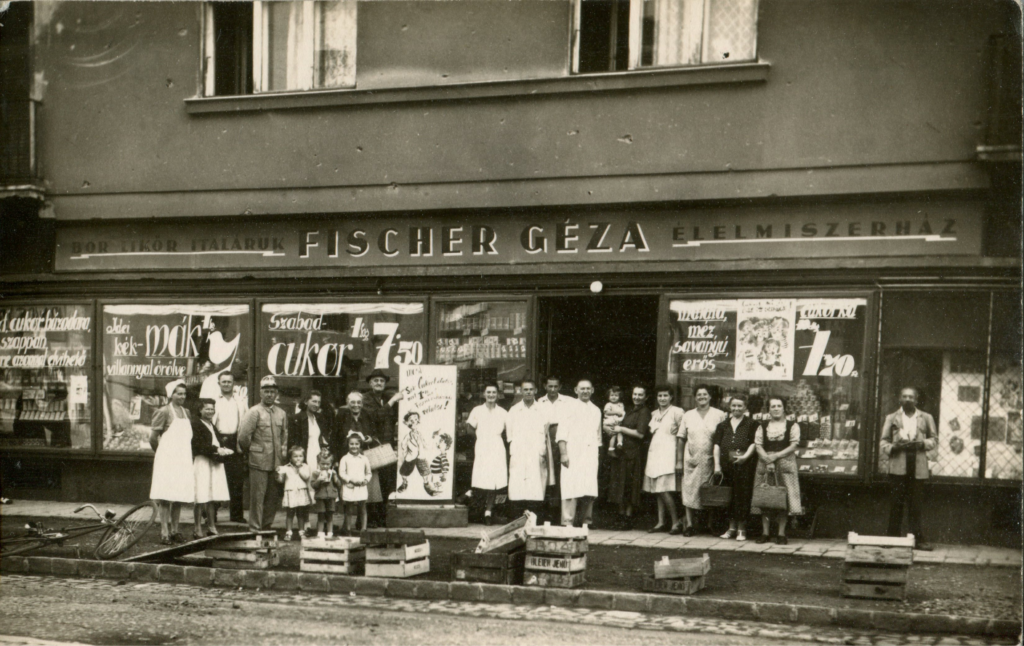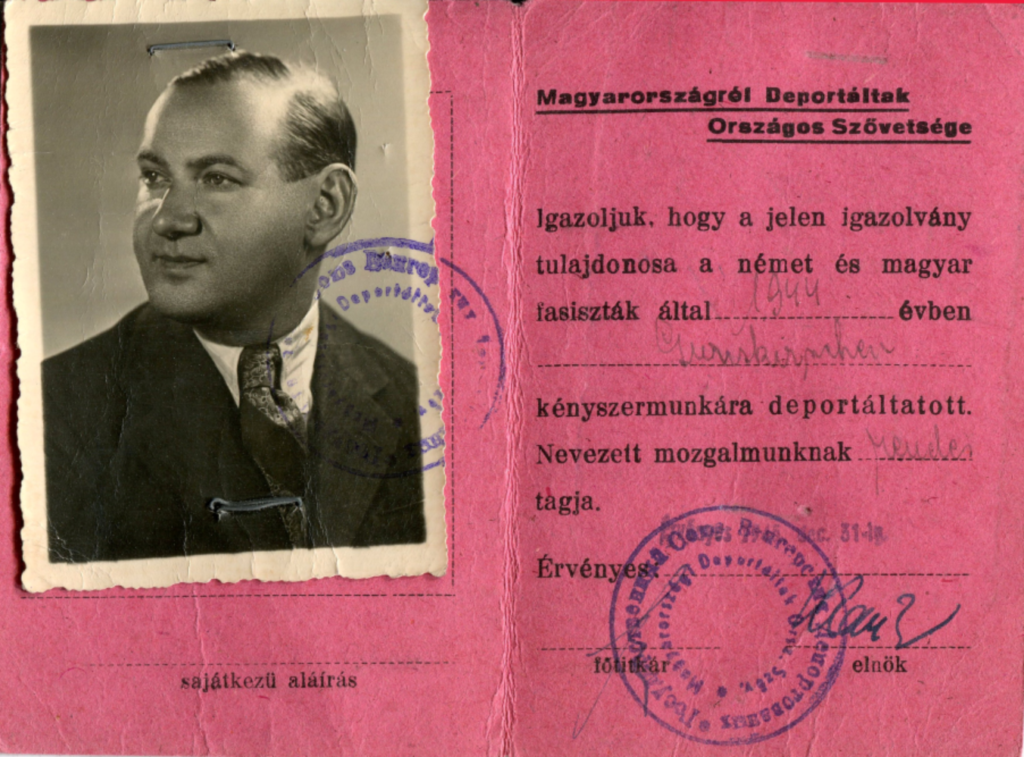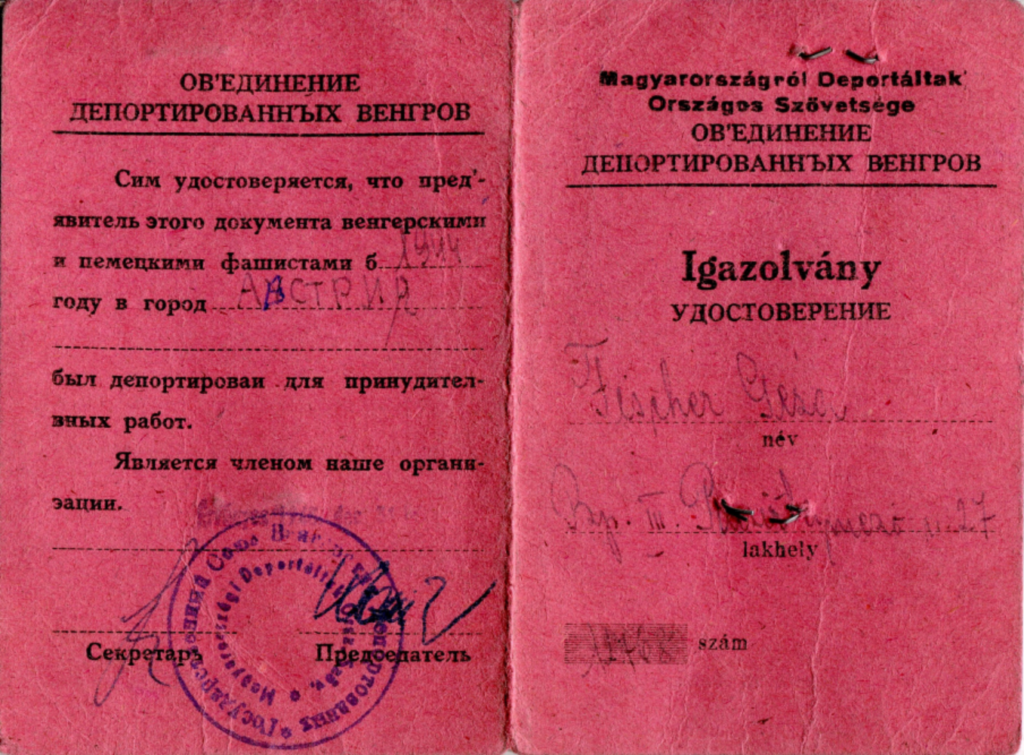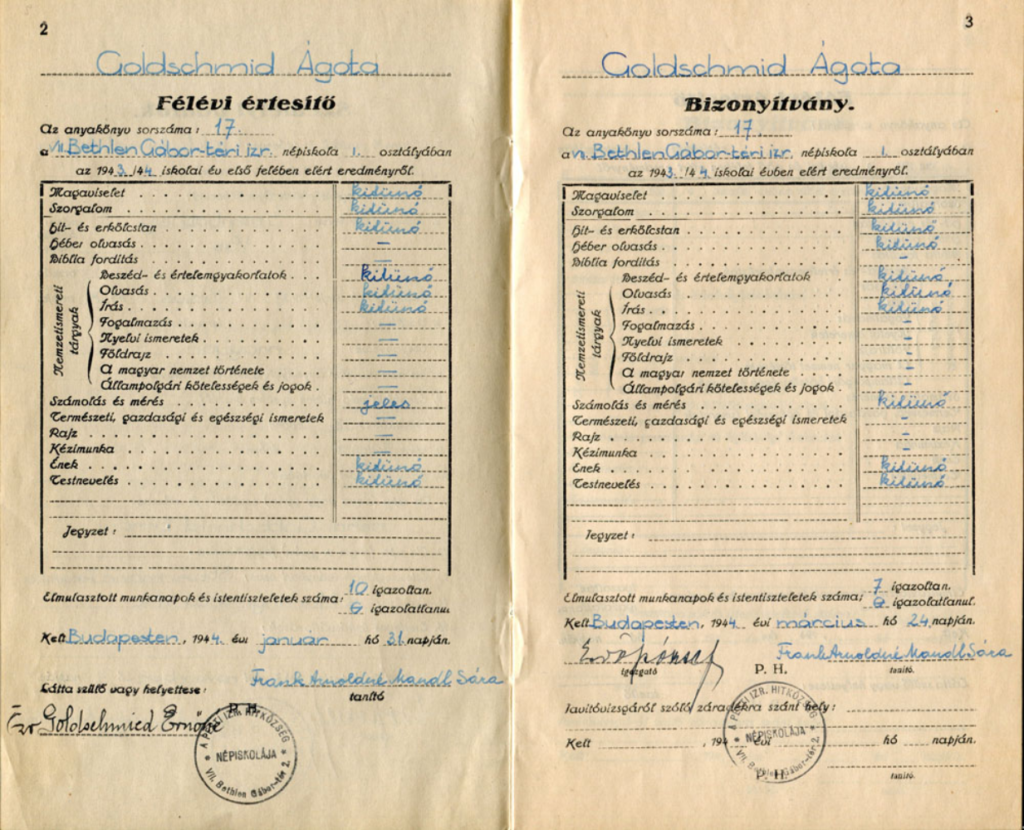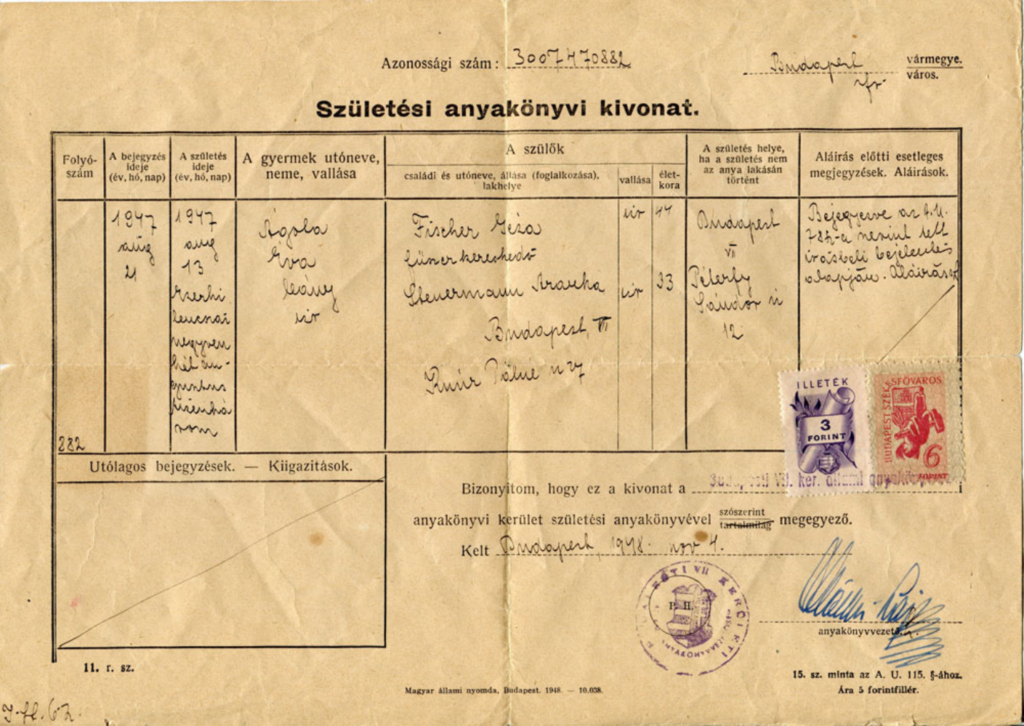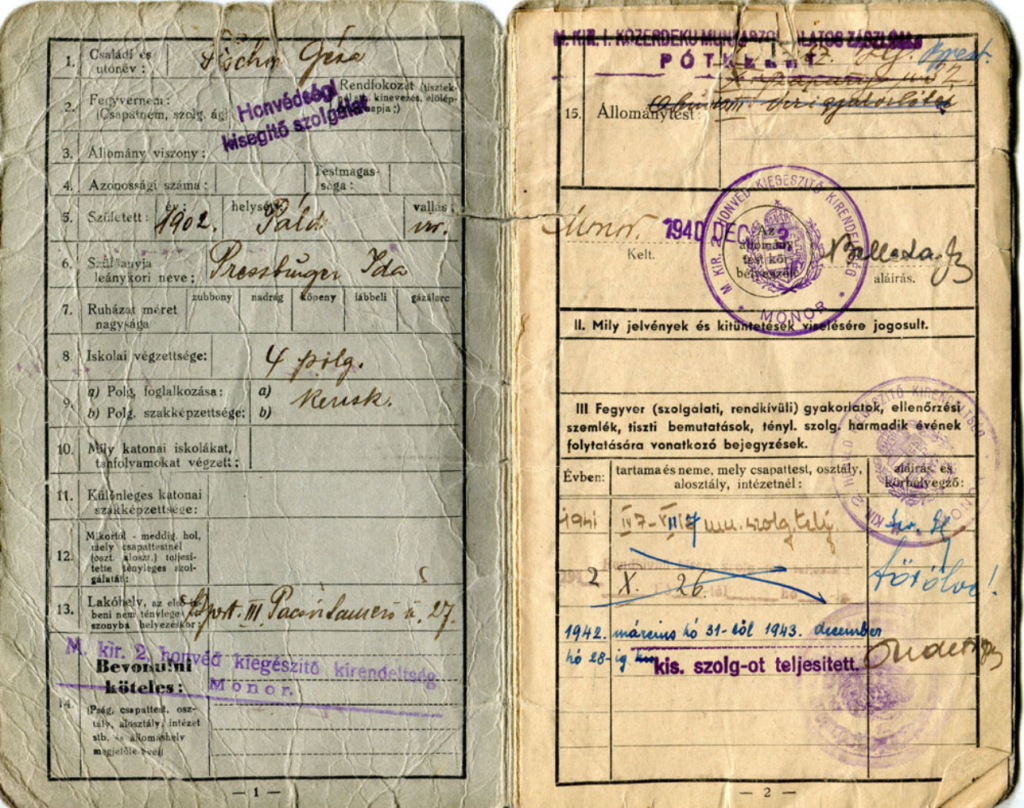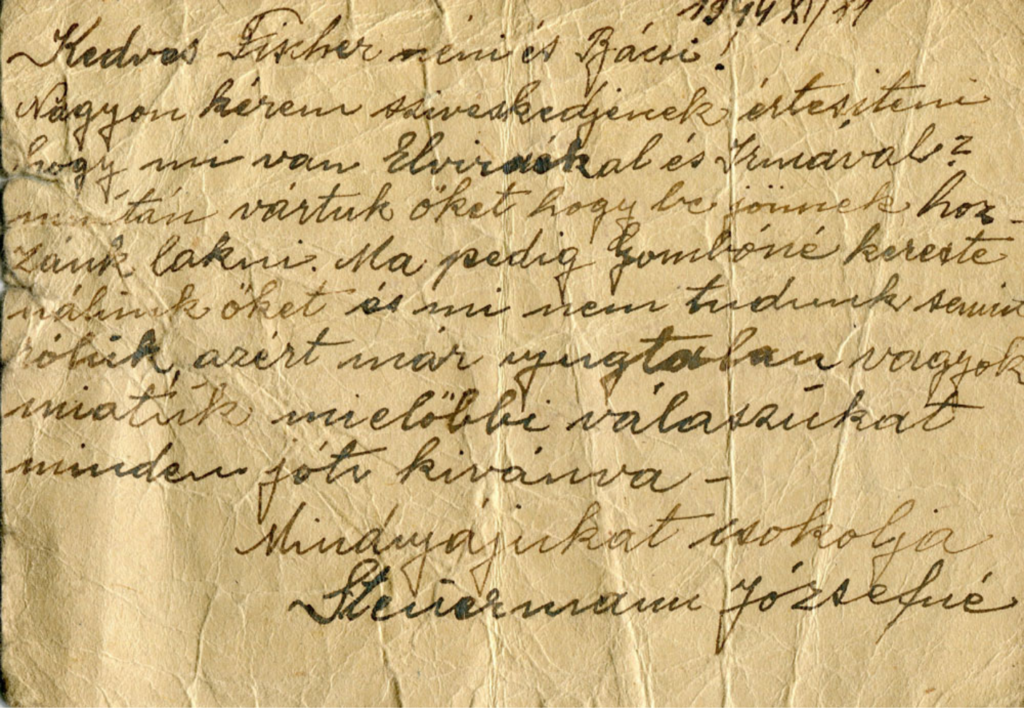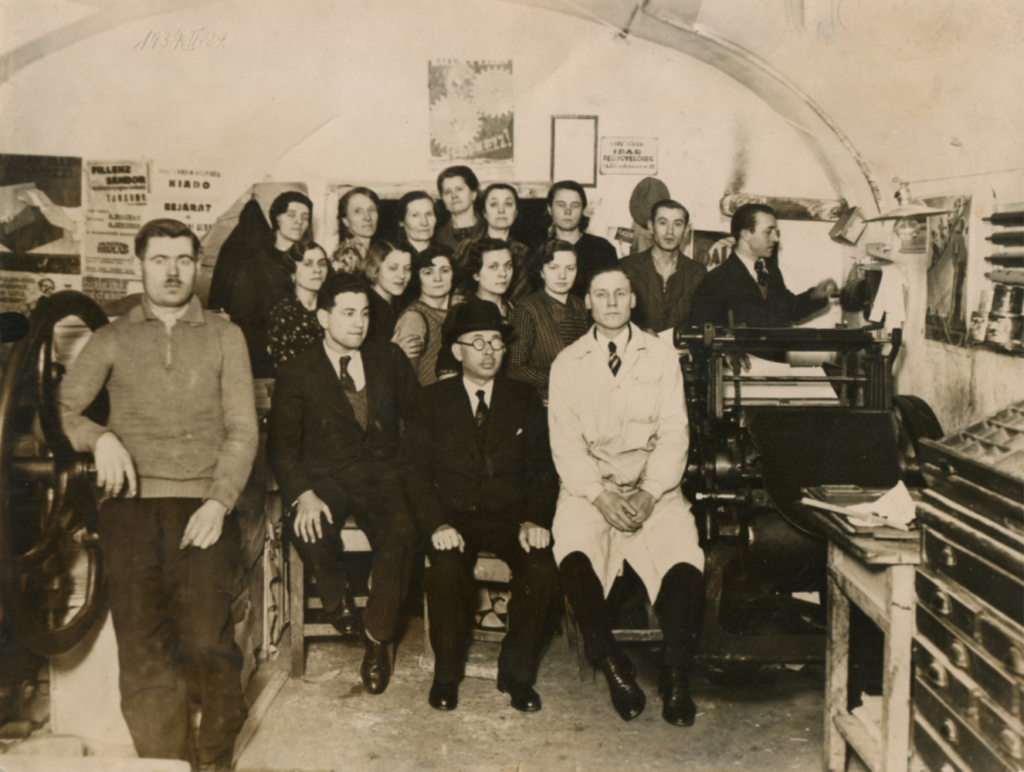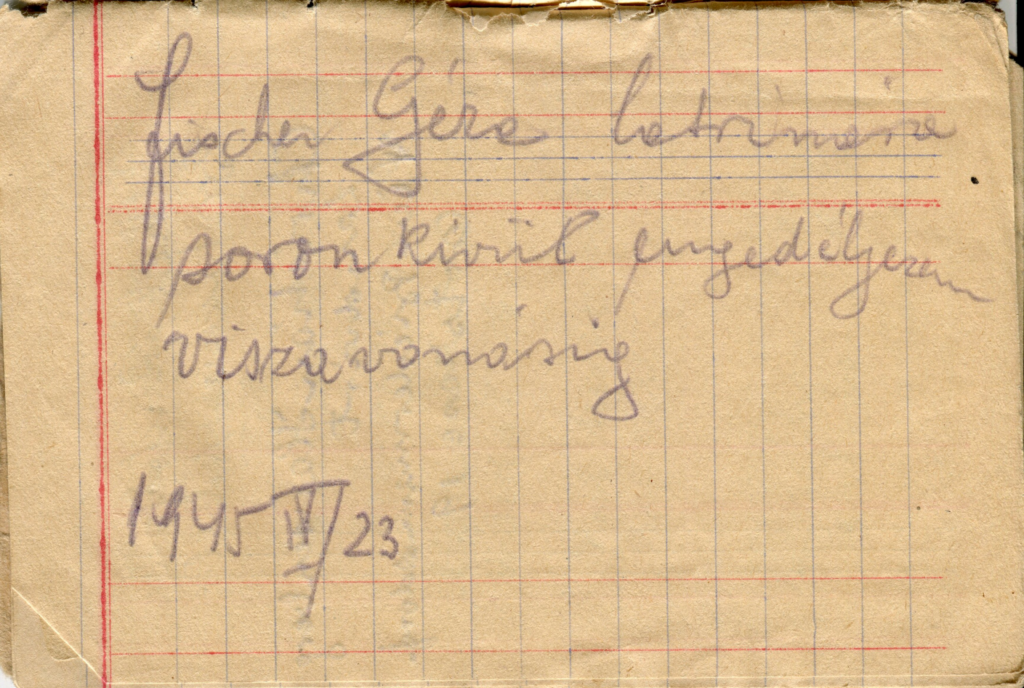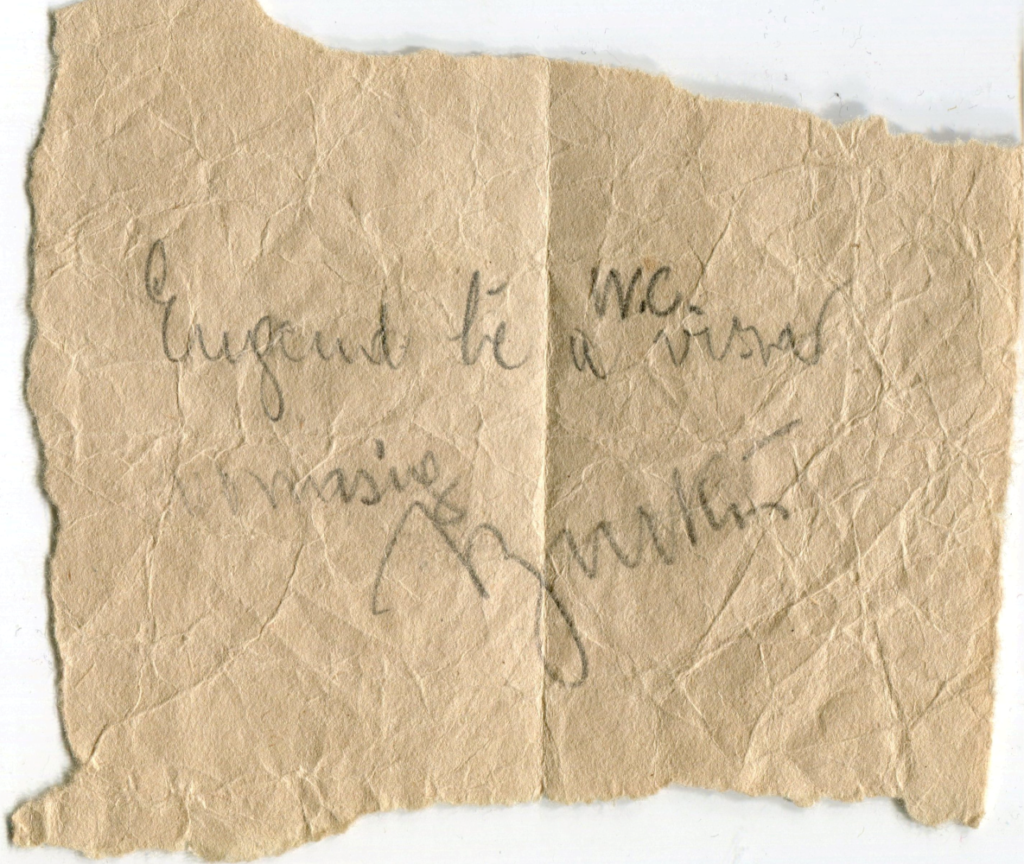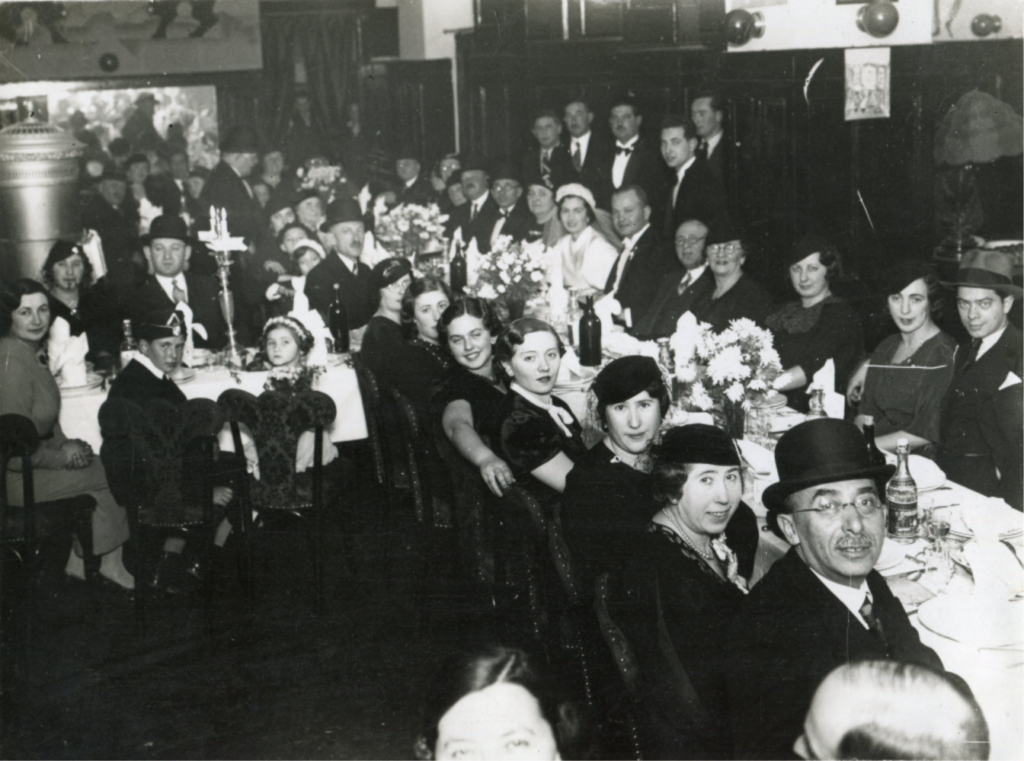CANDLELIGHT / Ágota Éva Fischer
I am the child of parents, who survived the Holocaust. I could also say that if it had not been for the Holocaust, I would not have been born. I am the candlelight that preserves the memory of my two dead half-sisters.
My mother was born in Pest in 1914. Her father was a stationery manufacturer who had emigrated from Poland. Her mother came from a family of farmers from Zala. She had one sibling. After graduating from the commercial school, my mother married a cattle merchant from Szombathely. Their daughter, Ágota, was born in 1937. They lived happily in a four-bedroom house in Szombathely until 1940. That year my mother’s husband developed gastrointestinal bleeding. He was taken to hospital too late, because of the anti-Jewish laws, and died. My mother moved back in with her parents in Pest. In 1944 she was deported to Lichtenwörth, while her daughter remained with the grandparents in the ghetto.
My mother returned from the concentration camp on 4 April 1945. She weighed 33 kilos and had typhus. Ágota died on the same day of the scarlet fever she contracted in the ghetto.
My father was born in Páld, near Pozsony (now Bratislava), in 1902, (the village is called Pavlovka today, and it is so small that the streets have no names, only the houses are numbered). He was six when he came to Pest, and he learned to speak Hungarian by the end of the first grade from the teacher who came from Upper Hungary, too. Later his parents also moved to the city, and they opened a grocer’s shop in Óbuda. My father had three siblings.
My father worked at the family shop until 1929, when he married and built his own home, in which he also opened a grocer’s shop. His wife came from the same village where my maternal grandmother was born – in fact she was the niece of my maternal grandmother. My father and his wife had a daughter, Éva, in 1930.
In 1934 my father’s family attended my mother’s wedding, they can be seen on the left side of the wedding photo.
My father was first called up for labour service in December 1940. To the end of 1944 he served in Hungary and in the Don River bend, and was sometimes allowed on leave to go home. When he returned safe and sound in 1944, he did not find his wife and daughter at home, because they had been taken to Auschwitz, and never came back.
My father was deported to Mauthausen. On the way there, they stopped at Fertőrákos for a while. As a grocer by trade, he had served in the kitchen during his labour service, and had been entrusted with procuring foodstuffs. This was the case in Fertőrákos, as well, where he met and made friends with a Swabian family who were relocated to Germany after the war. They kept in touch and corresponded until the death of my father in 1963.
By the time my father returned from Mauthausen, he had not only lost his wife and fourteen-year-old daughter, but his parents had also died in unknown circumstances, and his two brothers had also passed away.
My father developed severe gastrointestinal symptoms in the concentration camp (kép: latrinaengedély), and he was very weak, so my mother’s family cared for him until he recovered and was able to reopen his shop. It must be noted that, thanks to the caretaker, nothing had been taken from the flat or the shop during the war.
My widowed parents finally married in 1946, and I was born in 1947. I was given the name Ágota Éva.
My mother’s brother was a prisoner of the Russians for six years. When he came home in 1948, he advised my father to offer his shop to Meinl Ltd., because he was certain shops would soon be nationalised in Hungary, as well.
My father listened to him, and he could stay in his own shop as a manager on behalf of Meinl, then of its legal successor Csemege Commercial Company, until he retired in 1961.
